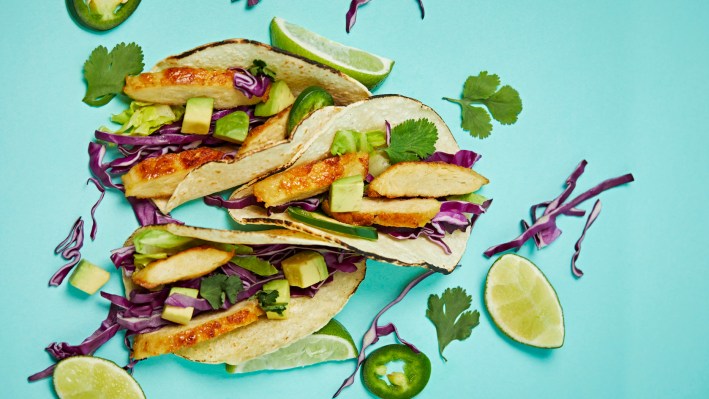Uma Valeti, founder and CEO of Upside Foods, has been a champion of the cultivated meat industry, and especially its work in reducing the dependence on animals for food, since he was a cardiologist. However, there’s one thing that is still a challenge: scaling.
In a one-on-one interview at TechCrunch Disrupt, Valeti explained that lots of people want to eat the cultivated chicken product UPSIDE Foods is producing — it just can’t make enough.
“We are trying to scale to make meat that will go to consumer markets at a price they can afford,” he said. “Therefore, what we’ve done so far with the product that’s on the market now is to win with an iconic product that shows the potential of what cultivated meat is.”
Upside Foods has raised over $600 million to date and is building facilities so it can produce at a higher rate. The company built its EPIC manufacturing facility nearly two years ago in Emeryville, California. In the past nine months since EPIC opened, the company has worked on scaling, now being able to make its next generation of products go up to the tens of thousands of pounds.
To add to that, last week, the company selected the Chicago area for its newest cultivated meat production facility, dubbed Rubicon. The $140 million production facility, at 187,000 square feet, will be able to produce millions of pounds of meat, Valeti said.
So is this a facilities or a people problem? For Valeti, it’s perhaps both. This whole cultivated meat industry is “transformative.” It has to go in steps, he explained.
First you have to get people to want to eat it, so the company picked the hardest thing to do — reproduce the taste, the texture, the flavor of a whole cut chicken filet. It seems to be well on its way, if you ask Valeti, which I did.
“When people taste it, they’re shocked,” he said.
Then you have to get the first sale and regulatory approval. It’s safe to say Upside can check off those boxes.
Now the next step “is going from first sale to formidable scale,” Valeti said.
“It’s not easy, but I have more conviction now than I found when I founded the company in 2015,” he added. “Our team is going to be able to get us across to that line of showing we can do formidable scale. We’re fortunate that we raised $400 million last year, and we are still sitting on most of it. We will be able to build a facility in Chicago. And the idea of doing that is to show now we’re talking industrial scale. Now we’re talking about showing the pathway to lower cost.”
Despite that scale challenge, which Valeti believes is “not insurmountable,” he is more optimistic about the industry than he was five years ago.
“Five to seven years ago, this space did not exist,” he said. “Let’s look now: We have 150 companies in the world going after this space in every major meat producing country. We have undergrad and PhD programs in the top food and ag universities that have been started. We have regulatory approval by two of the top regulatory agencies in the world in the United States, and in Singapore and other countries doing it. And lastly, we have $3 billion of financing that went into it in the absence of any meaningful significant revenue. It tells you that this is an idea that has captured people’s imagination.”
Editor’s note: The new production facility in the Chicago area is $140 million.
